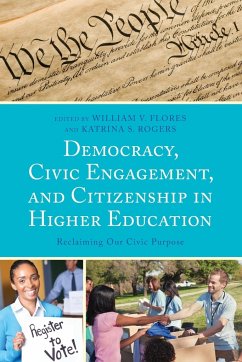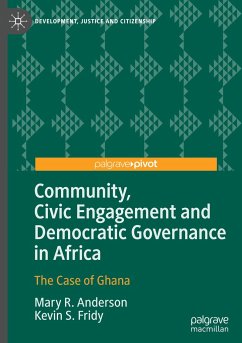
Renewing America's Civic Compact
Versandkostenfrei!
Versandfertig in 1-2 Wochen
93,99 €
inkl. MwSt.
Weitere Ausgaben:

PAYBACK Punkte
47 °P sammeln!
The essays in this volume address the chief challenges and principal tensions in the operation of our civil society in order to consider possible paths forward. It will be of interest to scholars of American history and politics, to thoughtful citizens and leaders facing present challenges, and to students and future Americans confronting the ongoing challenges of our times.













